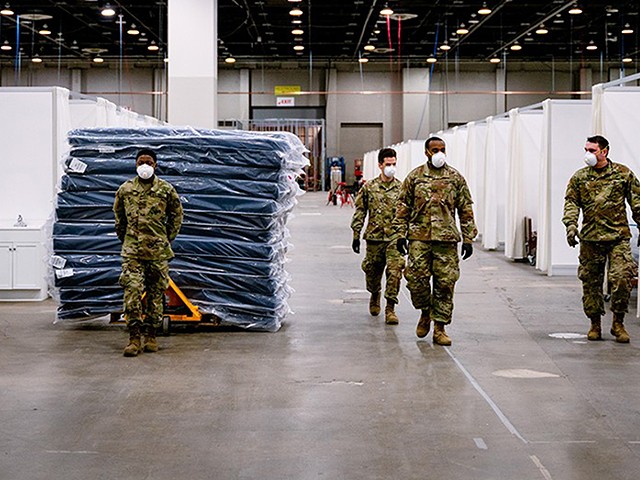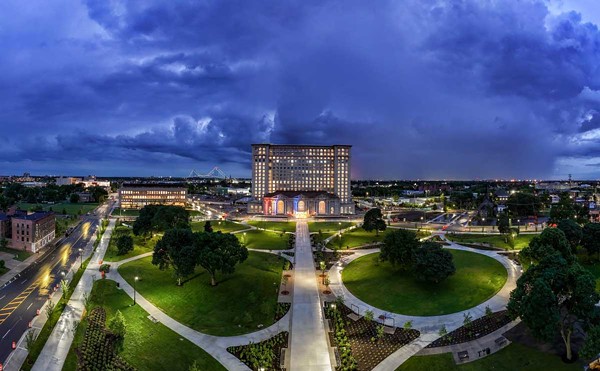The Michigan Psychedelic Society was created in 2017 by Julie Barron, who also serves as co-director of Decriminalize Nature Michigan, the very organization that has been doing the heavy lifting when it comes to educating communities throughout the state about the benefits of naturally occurring psychedelics and why they should be decriminalized.
Barron has been using plant medicine since she was 16, and has been a therapist for 25 years. It's through her master's program that she developed psychedelic preparation and individual and group psychedelic integration practices, but says it's only in the past decade that she's devoted her practice to this trippy and important work.
Early on, Barron says her teenage trips were formative.
"I developed a very, very open and adaptable mind," she says. "I was able to see that there was so much more than what was obvious and being presented in front of me, which allowed me to really forge my path in life from that point."
According to its website, the Michigan Psychedelic Society's objective is to "provide a safe space to discuss psychedelics, offer education, share information about safe and responsible use, increase awareness, provide integration support, build community, foster relationships with other organizations, and work towards legalization and/or decriminalization."
Barron says the group was born from the simple fact that people were constantly inquiring about psychedelics and mushrooms, for healing as well as exploratory purposes. This highlighted a glaring void in the movement: a community.
"What I was seeing over and over again is I have all these people coming individually to talk to me about psychedelics, some of them had nobody in their whole world to talk about it with," Barron says. "And they had to keep it very private. So one of the things that I realized is that these people are very isolated. And doing one-on-one therapy is good and great, but like, what was missing was a community to have these discussions, because these discussions can get really deep," she says. "They're not surface-level discussions. We realized that we needed a community base around psychedelics and psychedelic healing."
Don't get it twisted: Barron does not provide magic mushrooms or entheogenic substances to her clients, nor does she assist clients in procuring shrooms and the like. It should also be noted that her clients don't participate in tripping during these sessions. As Barron says, it's a fine legal line they must operate in until laws change. Until then, her job is to prepare people for a psychedelic experience. Remember set and setting? But beyond preparation, Barron says most clients meet with her four times at a minimum to figure out why an individual wants to trip and, then, how to use the experience beyond the trip itself.
"I can help them kind of figure out why they're doing it, what they're hoping to get out of it," she says. "And then, with the integration, do so in reverence, you know, set, setting and all those things that we talk about, and make sure everything is just the way we want it and make sure that people have the stability and the support that they may need through the experience and afterward. I do a combination of individual client integration and group integration. So you have this experience, now, what do you do with that? You had a message come through really clearly in the experience, but you can very easily ignore that, right? It's so much easier to continue as things are. Do you decide to make those changes? Sometimes they're really big, and sometimes they're really small changes. But how do you then take the lessons and the messages and the shift that happened through a psychedelic experience and actually make a long-lasting impact and change in your life?"
Barron says the majority of people that seek her services are usually looking to treat depression, PTSD, and addiction. But she also says she works with people who "are not sick," who are just looking for "spiritual or personal growth as part of their path," which she says she respects just as much as those seeking mental health treatments.
Barron says Decriminalize Nature Michigan and the Michigan Psychedelic Society have received little to no pushback from the community or from political and religious leaders, though she says she wishes to not speculate as to avoid putting that energy out there.
While she admits that DNM and MPS have been lagging a bit in the community-building department to focus their time and resources decriminalizing entheogenic plants in other cities like Kalamazoo, Grand Rapids, and Hazel Park, they are as committed as ever to making sure that people have the education, understanding, and reverence for the substances they may be using, and to ensure access to resources.
"When I'm having conversations with people, and they bring up something like, 'Oh, my family has a really strong history of addiction, this terrifies me,' I feel that they just don't know about it," she says. "They don't actually understand what we're talking about. So people will say things from time to time and the first thing that comes into my head is that we still have further to go to educate, because it means they don't understand it."





